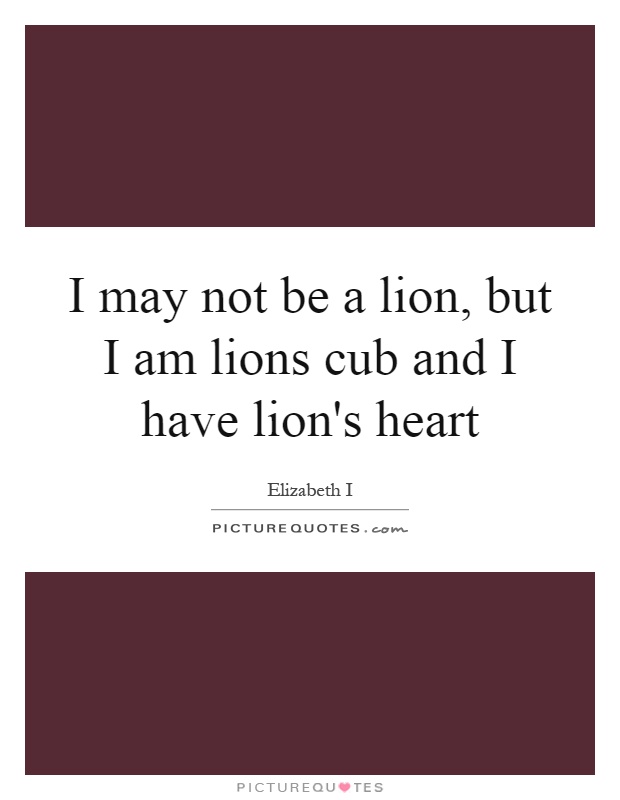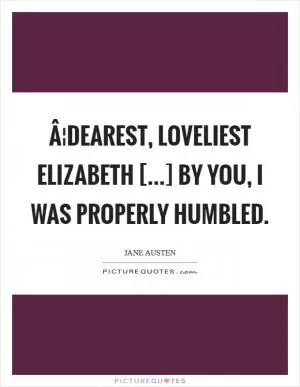I may not be a lion, but I am lions cub and I have lion's heart

I may not be a lion, but I am lions cub and I have lion's heart
Queen Elizabeth I of England was often referred to as the "Lioness of England" due to her fierce and courageous leadership during a tumultuous time in history. She was the daughter of King Henry VIII and his second wife, Anne Boleyn, and she ascended to the throne in 1558 after the death of her half-sister, Queen Mary I.Despite facing numerous challenges and threats to her reign, Elizabeth proved herself to be a strong and capable ruler. She was known for her intelligence, political savvy, and unwavering determination to protect her kingdom and her people. Like a lioness protecting her cubs, Elizabeth fiercely defended England against foreign invaders and internal threats, earning the respect and admiration of her subjects.
The quote "I may not be a lion, but I am a lion's cub and I have a lion's heart" perfectly encapsulates Elizabeth's spirit and determination. While she may not have been a literal lion, she possessed the same strength, courage, and ferocity as the king of the jungle. Elizabeth faced numerous challenges during her reign, including threats from rival monarchs, religious conflicts, and assassination attempts, but she never wavered in her resolve to protect her kingdom and her people.
Elizabeth's lion-like qualities were evident in her ability to make tough decisions, her willingness to take risks, and her refusal to back down in the face of adversity. She was a shrewd politician and a skilled diplomat, using her intelligence and cunning to outmaneuver her enemies and secure her position on the throne.
In addition to her political acumen, Elizabeth was also a patron of the arts and a supporter of exploration and discovery. Under her rule, England experienced a cultural renaissance, with writers, poets, and playwrights flourishing in her court. She also sponsored numerous expeditions to the New World, laying the foundation for England's future as a global power.












 Friendship Quotes
Friendship Quotes Love Quotes
Love Quotes Life Quotes
Life Quotes Funny Quotes
Funny Quotes Motivational Quotes
Motivational Quotes Inspirational Quotes
Inspirational Quotes